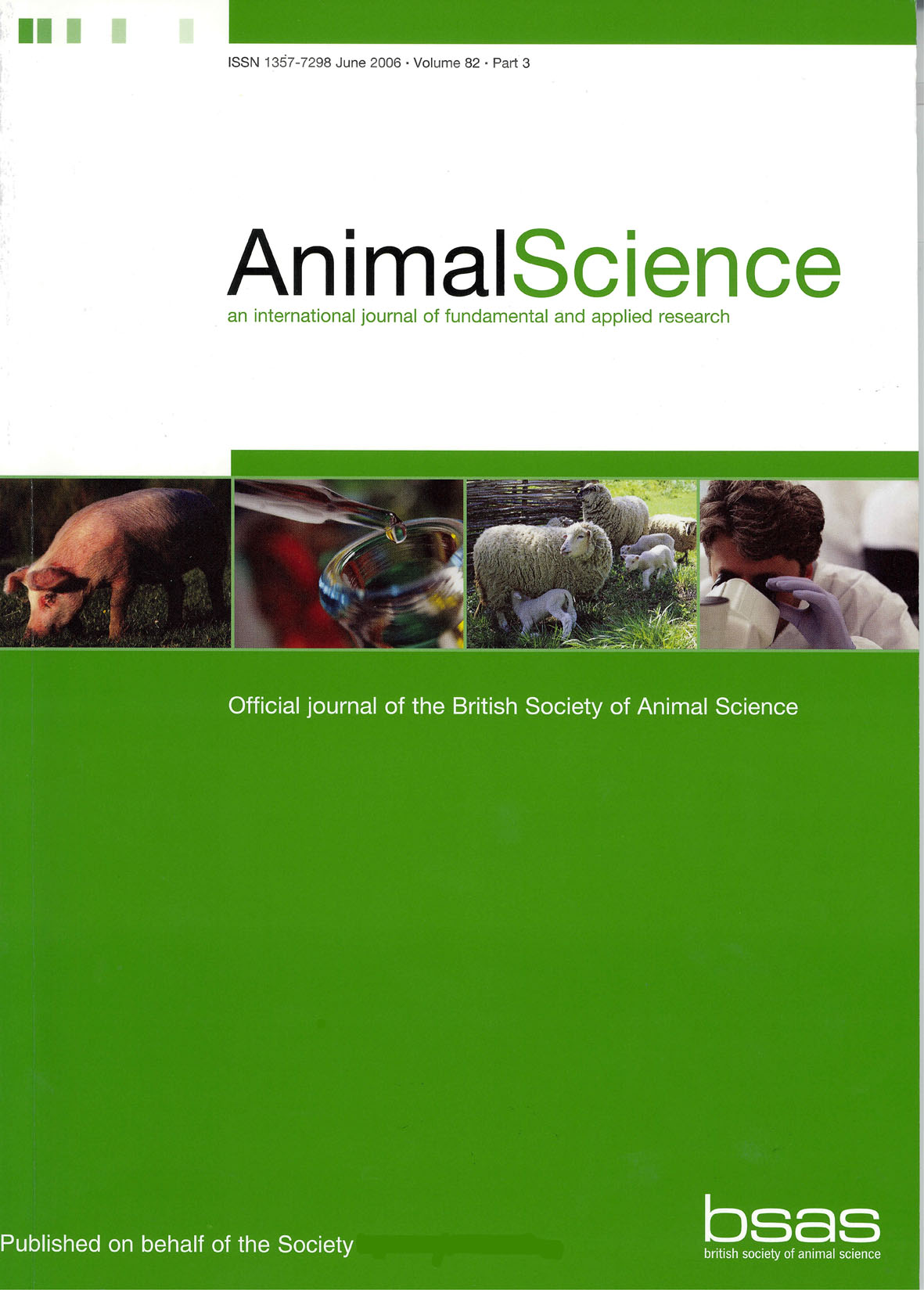Article contents
The importance of family sizes in adult multiple ovulation and embryo transfer (MOET) nucleus breeding schemes in dairy cattle
Published online by Cambridge University Press: 02 September 2010
Abstract
The importance of family sizes in adult multiple ovulation and embryo transfer (MOET) nucleus schemes with discrete generations of single trait selection was examined using Monte Carlo simulation. Two areas were investigated. Firstly, the number of sons and daughters per dam was varied in schemes using hierarchical mating designs. With four or eight sires and 32 dams selected, increasing the number of sons per dam from one up to four achieved 1 to 8% higher rates of response but at the expense of increased variation in response and 10 to 56% higher rates of inbreeding. With four or eight sires and 16, 32 or 64 dams selected, the number of daughters was set to two, four or eight (with one son per dam in each case). For schemes transferring equal numbers of embryos, responses were lower with two daughters per dam but were fairly similar with four or eight daughters per dam while inbreeding rates increased as fewer sires and dams were selected. Secondly, the effects of variation in family sizes due to biological factors and chance were investigated with eight sires and 32 dams selected and with hierarchical or factorial (two or four sires per dam) mating designs. When all selected cows yielded embryos, changes in family sizes due to differences in sex ratios, in survival rates of embryos to selection and to variation in the number of embryos per donor reduced response by 1 to 4%. However, when 20% or 33% of the superovulated females yielded no embryos, thus requiring the use of genetically inferior replacements, response was reduced by a further 9 to 13%
- Type
- Research Article
- Information
- Copyright
- Copyright © British Society of Animal Science 1991
References
REFERENCES
- 5
- Cited by


